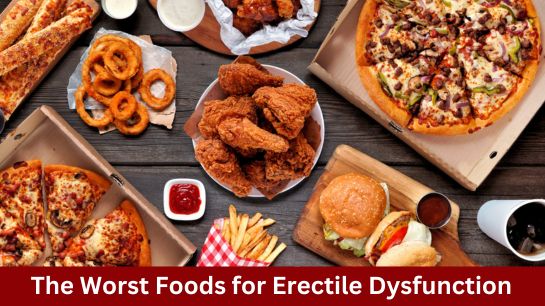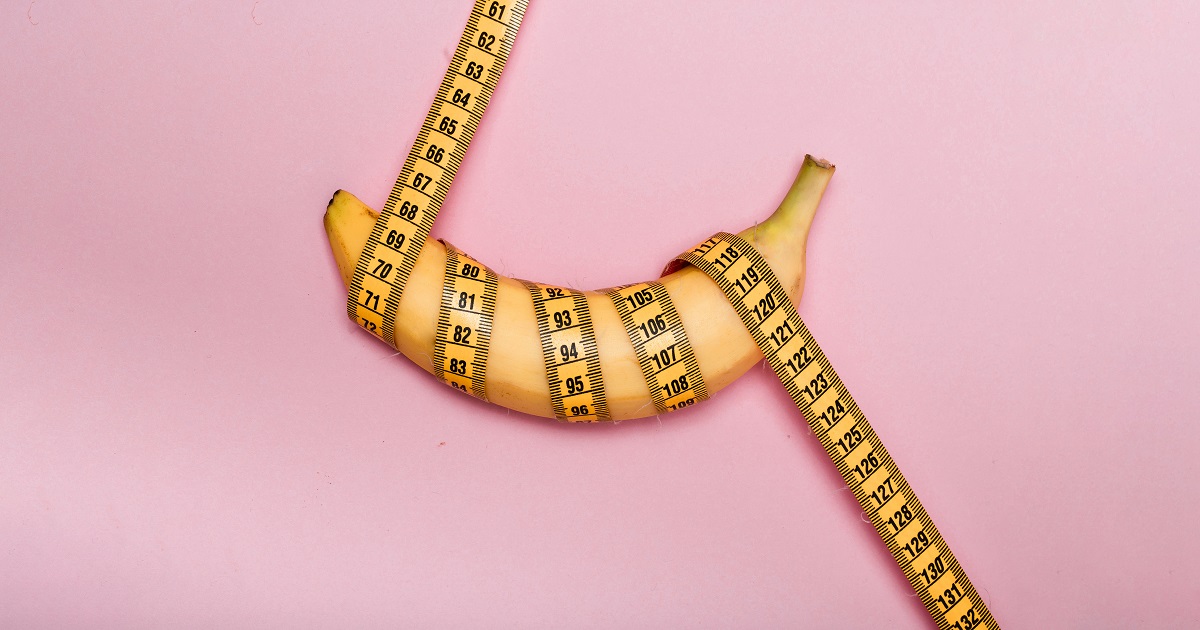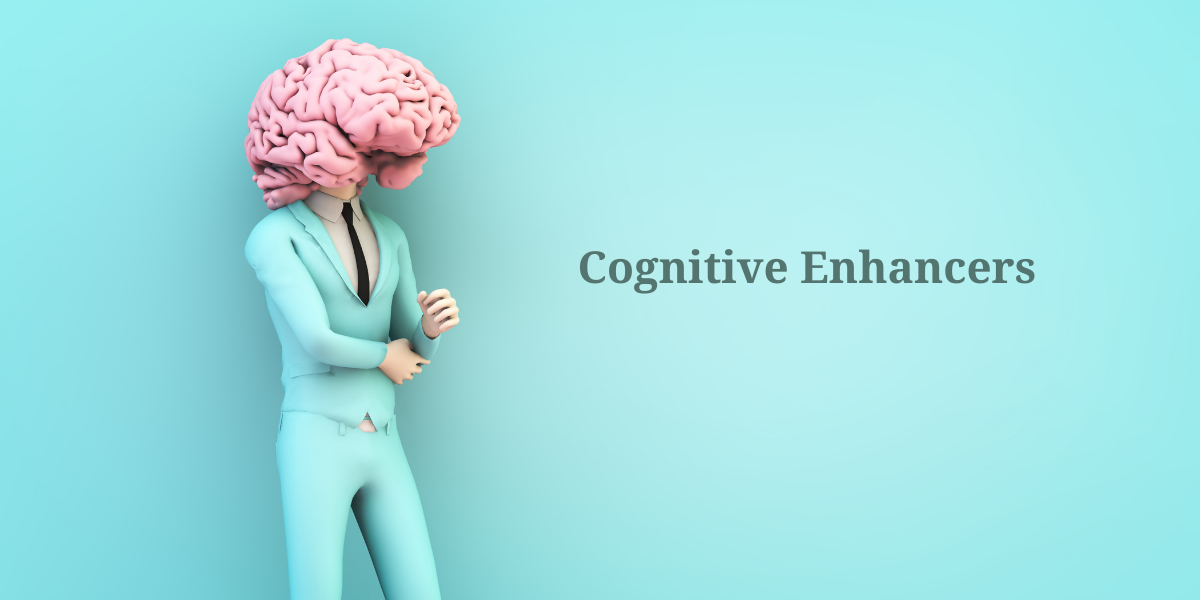Erectile dysfunction (ED) affects millions of men worldwide, and while the causes are numerous, food has a substantial impact on sexual health. Certain foods might exacerbate this disease, so it’s important to know what to avoid. In this detailed guide, we examine the worst foods for erectile dysfunction and explain how they affect your body and sexual function.
Erectile Dysfunction Definition
Erectile dysfunction is defined as the inability to obtain or maintain an erection sufficient for satisfactory sexual performance. It can be caused by both physical and psychological reasons, such as poor diet, lack of exercise, stress, and underlying health disorders like diabetes, hypertension, and cardiovascular disease. The foods we eat have a direct impact on our vascular health, hormone levels, and overall physical functioning, all of which are necessary for erectile health.
The inability to maintain an erection is the most defining symptom of erectile dysfunction.
- Inability to achieve erection
- Premature ejaculation
- Delayed ejaculation
- Low libido.
Erectile dysfunction can be caused by life circumstances, stress, or the use of certain drugs (such as antidepressants).
People with the following health conditions are more likely to experience ED.
- Atherosclerosis (Congested blood arteries)
- Diabetes
- Heart illness.
- High cholesterol.
- High blood pressure (hypertension).
- Hormonal problems (such as low testosterone)
- Metabolic Syndrome
- Parkinson’s disease.
Factors Contributing to Erectile Dysfunction
- Physical health issues include obesity, diabetes, and heart disease.
- Psychological influences include stress, anxiety, and sadness.
- Lifestyle decisions include binge drinking, smoking, and having bad eating habits.
Importance of Diet in Erectile Dysfunction
Diet is important for general health, including sexual health. Certain meals can hurt blood flow, hormone levels, and overall vigor, resulting in the development or aggravation of ED. Understanding which foods to avoid will help manage and possibly improve this disease.
Types and Categories
Processed Foods

- Processed foods are unhealthy to eat for a variety of reasons. They tend to be high in sugar and lacking in fiber. Processed foods are delicious, leading to excessive calorie consumption.
- Processed foods are nutritionally inadequate, making them one of the worst foods for erectile dysfunction. They also contain a lot of sodium, which is detrimental to your metabolism.
- Eating actual complete foods that are unprocessed or lightly processed benefits your overall health.
High-Fat Foods

Foods heavy in saturated and Tran’s fats can clog arteries, reducing blood flow, essential for erectile function.
One of the most prevalent causes of erectile dysfunction is saturated fat. These can reduce blood flow by compromising cardiovascular health, which is required for normal erectile function. The following foods are high in saturated fat.
- Fried foods
- Red meat (beef, pork, lamb).
- Chicken or turkey with skin
- Butter
- Cream or rich cream.
- Ice cream
- Palm oil.
- Lard
Unless otherwise told by a healthcare expert, it is acceptable to have some saturated fats in your diet; however, people should consume no more than 13 grams of saturated fat each day.
Conversely, many polyunsaturated fats may help with erectile dysfunction by improving blood sugar management and decreasing harmful cholesterol levels.
As a result, certain fats that are safe to consume include
- Peanut oil
- Soybean oil
- Sunflower oil
- Fish such as anchovies, salmon, and sardines contain omega-3 fatty acids.
- Walnuts
Sugar

The Link Between Sugar and Erectile Dysfunction
Effects of Sugar on Cardiovascular Health
Increased risk of obesity: Excess sugar consumption causes weight gain and obesity, both of which are substantial risk factors for cardiovascular disease and erectile dysfunction.
Increased blood sugar levels: Consuming sugary foods produces fast spikes in blood sugar levels, which can lead to insulin resistance and inflammation, impairing blood supply to the penis and compromising erectility.
Impact on blood vessels: High sugar intake harms blood vessels, limiting their ability to expand and deliver enough blood flow to the penis during arousal, resulting in erectile dysfunction.
Hormonal Imbalance
Insulin Resistance: Chronic sugar consumption can cause insulin resistance, upsetting hormonal balance and lowering testosterone levels, both of which are essential for men’s sexual performance.
Increased estrogen levels: Excess sugar consumption in men can raise estrogen levels, aggravating hormonal imbalances and contributing to sexual dysfunction.
According to the Centers for Disease Control (CDC), the following are some of the most prevalent causes of high blood sugar:
- Sweetened coffee and tea
- Candy
- Soft beverages
- Breakfast cereals
- Snack bars
- Energy drinks
- High-Sodium Foods
- Understanding Sodium Intake
Sodium is a mineral found in many foods, particularly salt (sodium chloride). While sodium is required for body functions such as fluid balance and nerve transmission, excessive consumption can cause health concerns. Most processed and packaged foods, as well as restaurant meals, are high in salt, often surpassing the recommended daily intake.
High-Sodium

The Role of Sodium in Erectile Dysfunction
Recent research suggests that a high-sodium diet may lead to the development of erectile dysfunction. Excess sodium intake can cause hypertension (high blood pressure), a major risk factor for ED. Hypertension destroys blood arteries and lowers blood flow throughout the body, including to the penis, causing erectile dysfunction.
Some examples of high-sodium foods to avoid include:
- Bread
- Rice
- Seafood
- Soups
- Meat and poultry
- Burgers
- Tacos
- Pasta
- Pizza
Using a Low-Sodium Diet to Improve Erectile Health
Tips to Reduce Sodium Intake
- Embracing Fresh and Whole Food
- Reading Labels: Discovering Hidden Sodium.
- Cooking at Home: Managing Your Sodium Intake
Alcohol

Drinking excessive amounts of alcohol might directly harm sections of the body involved in obtaining and sustaining erections:
Lowers testosterone: Alcohol lowers testosterone levels in the near term and can shrink testicles in the long run by damaging Leydig cells. Lower testosterone levels limit sexual desire.
Increases estrogen: Alcohol affects the liver’s estrogen breakdown, further lowering useable testosterone. This chemical imbalance reduces arousal.
Penile tissues are harmed: Excessive drinking introduces toxins that harm the endothelial cells that line the blood arteries. This endothelial dysfunction stops arteries from relaxing normally during arousal.
While moderate, infrequent alcohol consumption poses little erectile risk, prolonged heavy drinking sabotages crucial structures and signals that enable erections. Setting defined limits on alcohol use can assist in mitigating its varied effects over time.
Caffeinated Beverages

How Caffeine Affects Erectile Function
Vasoconstriction with decreased blood flow: Caffeine constricts blood vessels, limiting blood flow to several regions of the body, including the penis. Adequate blood flow is essential for getting and keeping an erection.
Increased stress levels: Caffeine promotes the release of stress hormones such as cortisol. Elevated stress levels can disrupt the neural system’s capacity to coordinate the physical processes required for an erection.
Sleep Disruption: Excess caffeine use, particularly late in the day, might alter sleep patterns. Poor sleep quality is associated with increased stress and hormone abnormalities, both of which can lead to ED.
The following are the most frequently consumed caffeinated beverages, according to the CDC:
- Coffee
- Cocoa beans
- Chocolate
- Energy Drinks
- Kola nut
- Guarana
- Yerba mate drink
- Chewing gum
Oral Medications for Erectile dysfunction (ED)
Sildenafil (Viagra)
How It Works: Sildenafil enhances blood flow to the penis, making it easier to obtain and sustain an erection.
Dosage: Typically takes 30 minutes to an hour before sexual activity. The effects can last for up to 4-5 hours.
| Malegra 200 | Super P Force | Kamagra Oral Jelly | Cenforce 100 |
Tadalafil (Cialis)
How it works: Similar to sildenafil, tadalafil increases blood flow to the penis. Known for its longer duration of action, allowing for more spontaneity.
Dosage: This can be taken every day or as needed. When used as directed, it should be taken at least 30 minutes before sexual activity, and its effects can last up to 36 hours.
| Super tadarise | Vidalista 20 | Vidalista 60 | Vidalista Professional |
Vardenafil (Levitra)
How it works: Vardenafil increases blood flow to the penis, which aids in the formation and maintenance of an erection.
Dosage: Typically taken about an hour before sexual activity. The effects can persist for approximately 4-5 hours.
| Vilitra 20 | Vilitra 60 | Vilitra 10 | Extra Super Zhewitra |
Avanafil (Stendra)
How it works: A newer alternative that operates more quickly than the others. As with other PDE5 inhibitors, Avanafil increases blood flow to the penis.
Dosage: Typically taken 15 to 30 minutes before sexual activity. The effects can last up to six hours.
| Avana 100 | Avana 200 mg | Super Avana | Extra super avana |
Preventive Measures
Healthy Diet
Choosing fruits, vegetables, whole grains, and lean proteins over processed and high-fat diets.
Regular Exercise
Regular physical activity helps to promote cardiovascular health and blood flow.
Stress Management
Stress and anxiety can be reduced by techniques such as yoga, meditation, and mindfulness.
Regular Medical Check-ups
Routine visits to a healthcare provider to check and manage health issues that may lead to erectile dysfunction.
Conclusion
Avoiding some meals can help prevent erectile dysfunction. High-fat, high-sugar foods, such as fried snacks and sugary drinks, reduce circulation, which is essential for robust erections. Excessive alcohol consumption affects hormone levels and hydration, whereas sodium-rich foods boost blood pressure, further impairing circulation. Excessive use of soybean-based products can disrupt hormonal balance. A balanced diet rich in fruits, vegetables, whole grains, and lean proteins promotes improved erectile function and general health. Making appropriate nutritional choices is critical to maintaining a healthy sexual life.
FAQS
Q1.What Foods that kill erectile dysfunction?
Ans: Some may improve blood flow, while others may boost testosterone levels, but the following foods may all help you get an erection if you’re prepared to incorporate them into your diet:
- Spinach, lettuce, and other nitrate-rich vegetables
- Oysters and other shellfish
- Tomatoes, watermelon, and other sources of lycopene
- Avocados
- The foods of the Mediterranean diet
- Natural Viagra foods
Q.2 Which is Natural Viagra food for erectile dysfunction?
Ans: Watermelon, pomegranate, onions, and garlic function as natural Viagra. They enhance blood flow to the penis due to their rich phytonutrient content, which boosts nitric oxide production and relaxes blood vessels.
Q3. What is the Best Breakfast for erectile dysfunction?
Ans: Oatmeal. Oatmeal may not appear to be a particularly exciting or sexual food, but it, like the other items on this list, can aid with ED. This famous breakfast dish contains l-arginine, an amino acid used to treat erectile dysfunction.
Q4. Do eggs cause erectile dysfunction?
Ans: No, Eating eggs promotes good erections. Eggs containing the amino acid L-arginine can also aid in improving erectile dysfunction.
Q5. How do you increase nitric oxide in erectile dysfunction?
Ans: A diet high in nitrate-rich foods and antioxidants, as well as the use of supplements like L-arginine or L-citrulline, can help your body produce more nitric oxide naturally. Other tried-and-true measures include using less mouthwash and exercising more frequently.



